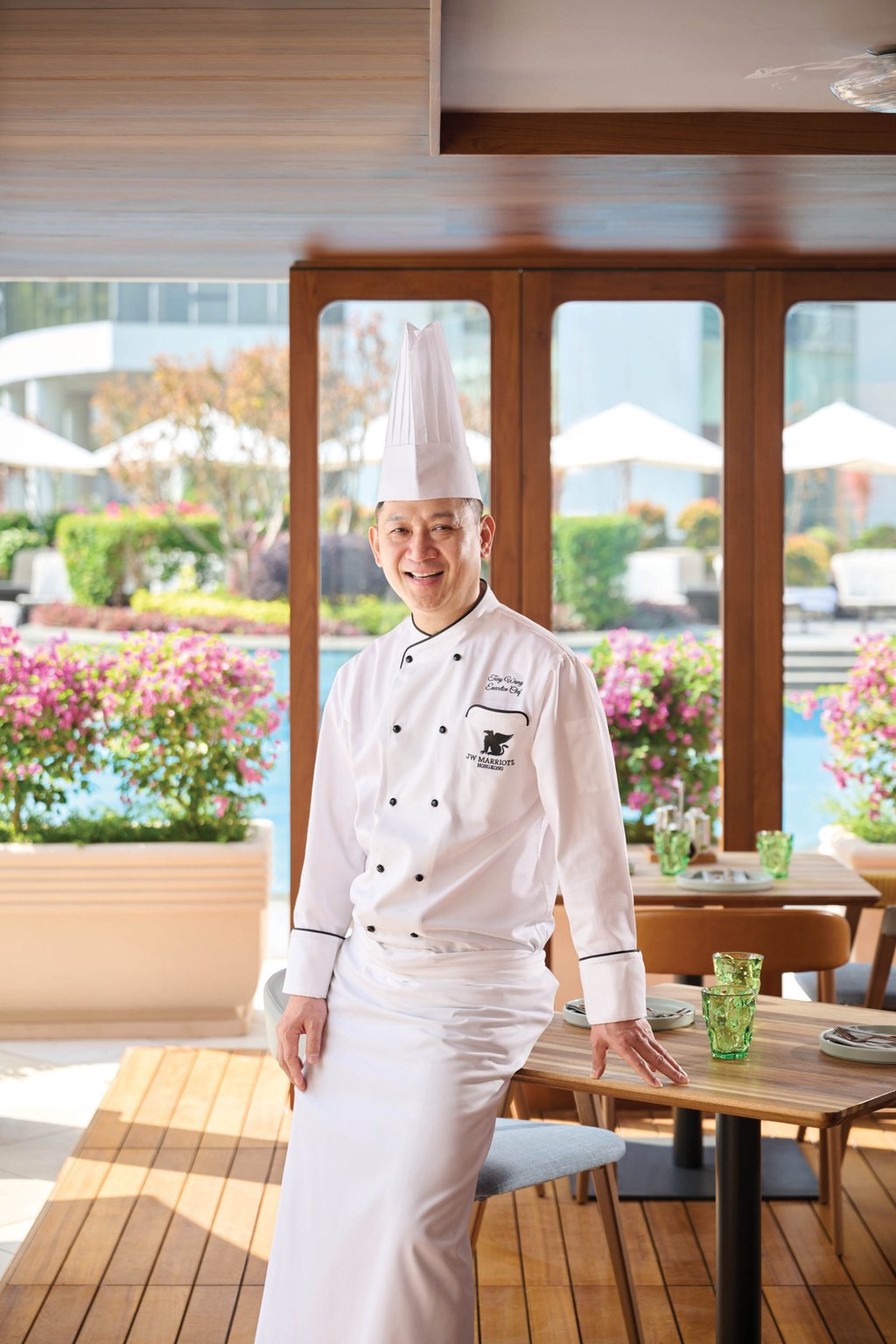Fish bone pasta, anyone? JW Marriott Hotel Hong Kong has found a new way to reduce food waste: eating it
The hotel’s executive chef Tony Wong Chi-chuen saw how many fish bones were left over from the hotel’s daily buffet – and made fettuccine with them

Every day, Hong Kong generates a mind-boggling 3,300 tonnes of food waste – equivalent to more than 10 of Lantau Island’s Big Buddha statue. It’s the sobering result of global food systems increasingly out of touch with the climate crisis – this year is projected to be one of the hottest on record, potentially exceeding 1.5 degrees Celsius above pre-industrial levels – but what if the solution to reducing food waste were as simple as … eating it?
That’s the intriguing proposition that sat on a platter before me, during a balmy late-summer lunch at the Fish Bar on the pool deck of the JW Marriott Hotel Hong Kong, in the form of fish bone fettuccine paired with a whole Boston lobster.
It’s an ingenious solution courtesy of the luxury hotel’s renewed push for eco-conscious eating, with the revamped Fish Bar leading the effort in terms of sustainable seafood.
According to executive chef Tony Wong Chi-chuen, the idea occurred to him when he saw how many fish bones were left over from the hotel’s daily buffet.
“At the JW Café, we serve grouper fish, but the wastage is quite high as guests prefer the best parts,” he says.

To reduce the waste, the leftover hard bones are boiled to make fish bone and tomato soup; but since the soft bones don’t add much flavour, Wong boils them to get rid of the fishy taste, then dehydrates them for 24 hours.
